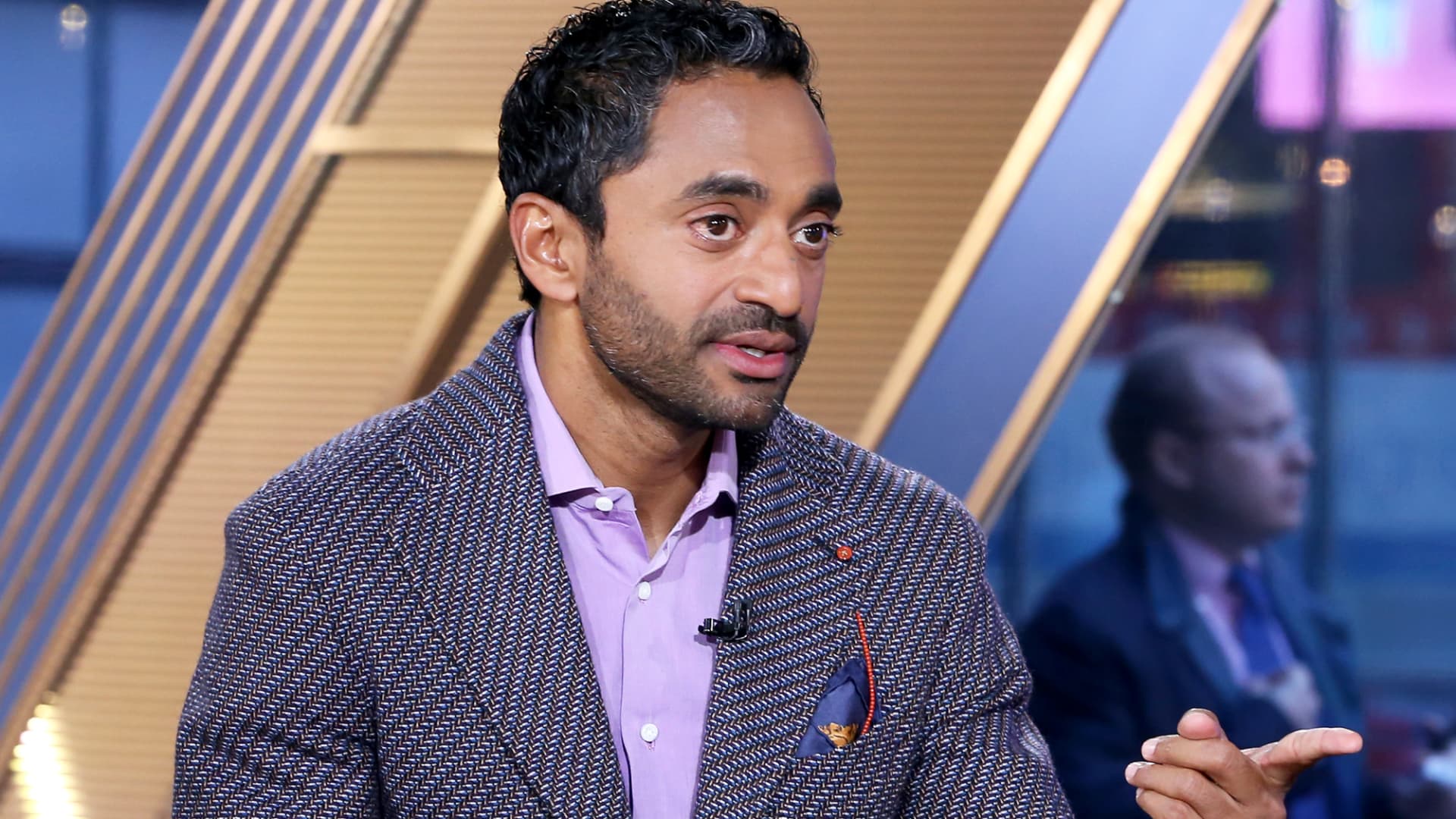
Chamath Palihapitiya
Olivia Michael | CNBC
Billionaire investor and so-called SPAC King Chamath Palihapitiya said the zero interest rates the Federal Reserve allowed to persist for years created the “perverted” market conditions he benefited from at the height of the pandemic.
Speaking with Axios’ Dan Primack at an event on Wednesday, Palihapitiya explained what he felt contributed to the rapid rise and collapse of the SPAC market, the shorthand for special purpose acquisition companies, which created a way for young companies to go public without some of the usual IPO hurdles. SPACs, which grew in popularity in the first two years of the pandemic, have seen a reset amid economic and regulatory headwinds. Still, there are more than 450 deals on the market for a merger target ahead of 2023 deadlines, according to SPAC Research.
The former Facebook executive and CEO of Social Capital has helped several companies go public via SPAC, including Virgin Galactic, from which he later sold his personal stake before stepping down from the board. Earlier this month he closed two SPACs after failing to find merger targets in time.
“We are learning what went wrong, which is that we had a decade-plus of zero interest rates,” Palihapitiya said of the market. “That is what fundamentally was wrong. It perverted the market. It distorted reality. It allowed manias and asset bubbles to build in every single part of the economy.”
Low interest rates mean lower returns on savings accounts, which can encourage more spending in the economy, which can be a boon for high-growth assets.
Palihapitiya said the “free money” given by the central bank resulted in a “misallocation of risk,” which led many people to misprice the risk of their investments.
Still, Palihapitiya pushed back on the idea that SPACs were hit harder than other assets, including tech stocks.
“When you provide free money into a system, manias will build and these manias are broad-based,” he said. “And now that we’ve taken money out of the system, these manias will end, and you will find the market-clearing price for a lot of securities. And I think that that’s a healthy process. But I think it’s unfair to just look at one asset class.”
Now that interest rates are rising again, Palihapitiya said, “The biggest thing that I learned was how much of my early success was probably not attributable to myself. So on the same way that I sort of blame Jay Powell for zero interest rates, I think I massively benefitted from Powell, and Bernanke and Janet Yellen before,” he said, referencing past Fed chairs.
“We have actually had a massive tailwind because we had a zero interest rate environment that allowed us to raise unbelievable amounts of money from investors who frankly had very few other alternatives because interest rates were zero,” he said. “And what it allowed us to do was crowd into companies. Many of those companies had unbelievable valuations. Eventually these unprofitable businesses went public and only now are we starting to sort out what are good and what are not so good businesses.”
-CNBC’s Yun Li contributed to this report.
WATCH: Chamath Palihapitiya unwinds two SPACs, cites high valuations and market volatility






